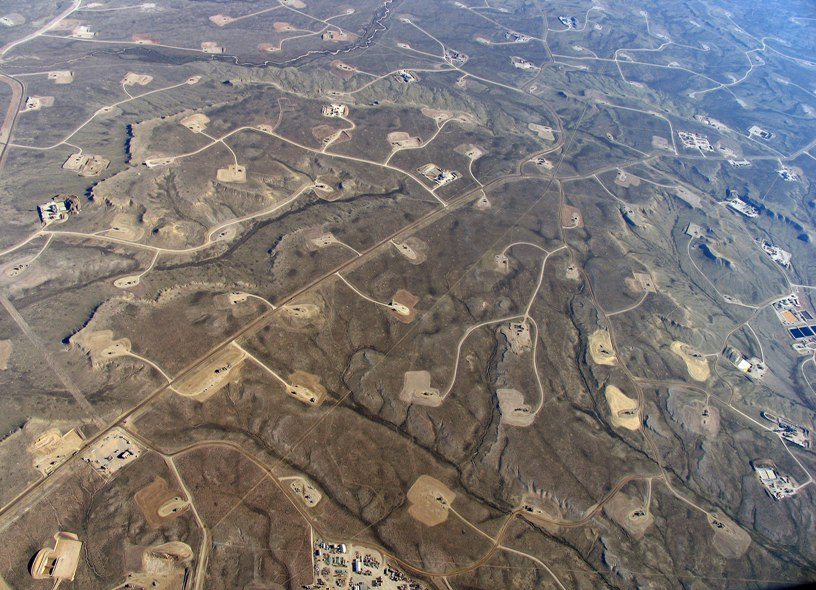A bill being pushed through the North Carolina legislature would fast track hydraulic fracturing in the state. The bill passed the state Senate yesterday and now heads to the House.
The bill, called the Energy Modernization Act, was introduced by Bob Rucho, a 6 term North Carolina senator with close ties to the oil and gas industry. Ruchos billwould prohibit communities from voting on local ordinances against fracking, and would make it a criminal offense for doctors, first responders or health professionals to disclose the potentially harmful chemicals used in the fracking process. The bill originallyforced the state to begin issuing fracking permits by July 1, 2015, whether or not rules to regulate the industry were in place, but amendments passed yesterday removed that clause. Currently the bill requires that permits for drilling be issued 60 days after fracking rules are approved by the general assembly.
Rucho is the co chairman of the state Energy Policy Commission. One of his top campaign contributors is Piedmont Natural Gas, a gas company that promotes fracking. Piedmont made the maximum allowable donation to Rucho’s reelection campaigns. As chairman of the energy commission, Rucho has given Piedmont high level access to the legislature, selecting Piedmont Natural Gas executive and American Petroleum Institute spokesperson James Erb to address a 2012 Senate committee meeting as an expert on fracking.
Another top political contributor to Bob Rucho is McGuireWoods, a lobbying firm that works for the American Petroleum Institute, Halliburton, and Koch Industries, companies heavily involved in the fracking industry.
In 2013, A McGuireWoods lobbyist working for the American Petroleum Institute, the largest oil and gas industry lobbying group, threw a $2,897 per plate fundraising party for Rucho.
The lobbyist behind the dinner, Kerri Burke, is one of the American Petroleum Institutes key influence peddlers in North Carolina. Documents obtained by Greenpeace show that Burke has set up meetings between API executives and the Mining and Energy Commission (MEC), the governmental body tasked with proposing fracking regulations in North Carolina. Burke was also involved in researching fracking opponents, and passed that information along to pro-fracking members of the MEC.
Rucho has also been the recipient of industry led trips to fracking plays in Pennsylvania. He and another legislator took two trips to fracking operations owned by Chesapeake Energy, the second largest fracking company in the US. Chesapeake guided the tours and drove the legislators around select parts of Chesapeakes fracking operations. Neither trip included meeting with local residents affected by fracking or opponents of shale drilling. Rucho reported, What we saw was green grass and cows grazing.” Chesapeake has been involved in several high profile water contamination incidents in Pennsylvania, including a $1 million penalty for water contamination, issued shortly before Ruchos visit.
Ruchos bill has been criticized for failing to address key concerns about hydraulic fracturing. The bill contains no mention of the tens of million of gallons of toxic wastewater created by each facking well. Wastewater from fracking has been linked to livestock and family pet deaths across the country. Other states have struggled to find ways of disposing of this wastewater, which can be radioactive and is unable to be cleaned by normal water treatment processes. In some states, like Oklahoma, underground disposal of fracking wastewater has been linked to dramatic upticks in earthquakes. In Pennsylvania, radioactive wastewater has been spilled into streams and improperly dumped in water treatment facilities.
The bill also fails to address air quality impacts from fracking wells, which leak Volatile Organic Compounds (VOCs), which have been linked to serious health issues in communities near frackng operations. New studies from the Front Range area of Colorado and Marcellus region of Pennsylvania have found VOC and methane leakage from fracking wells that far exceed EPAs predictions. In Colorado, a study by the National Oceanic and Atmospheric Administration’s Cooperative Institute for Research in Environmental Sciences at the University of Colorado Boulder found 19 tons of methane leaking from fracked wells per hour. Methane is a potent Greenhouse gas, 86 times more powerful than CO2. In Pennsylvania, a Cornell University study found methane emission rates from the drilling process were up to 1000times EPA estimates.




